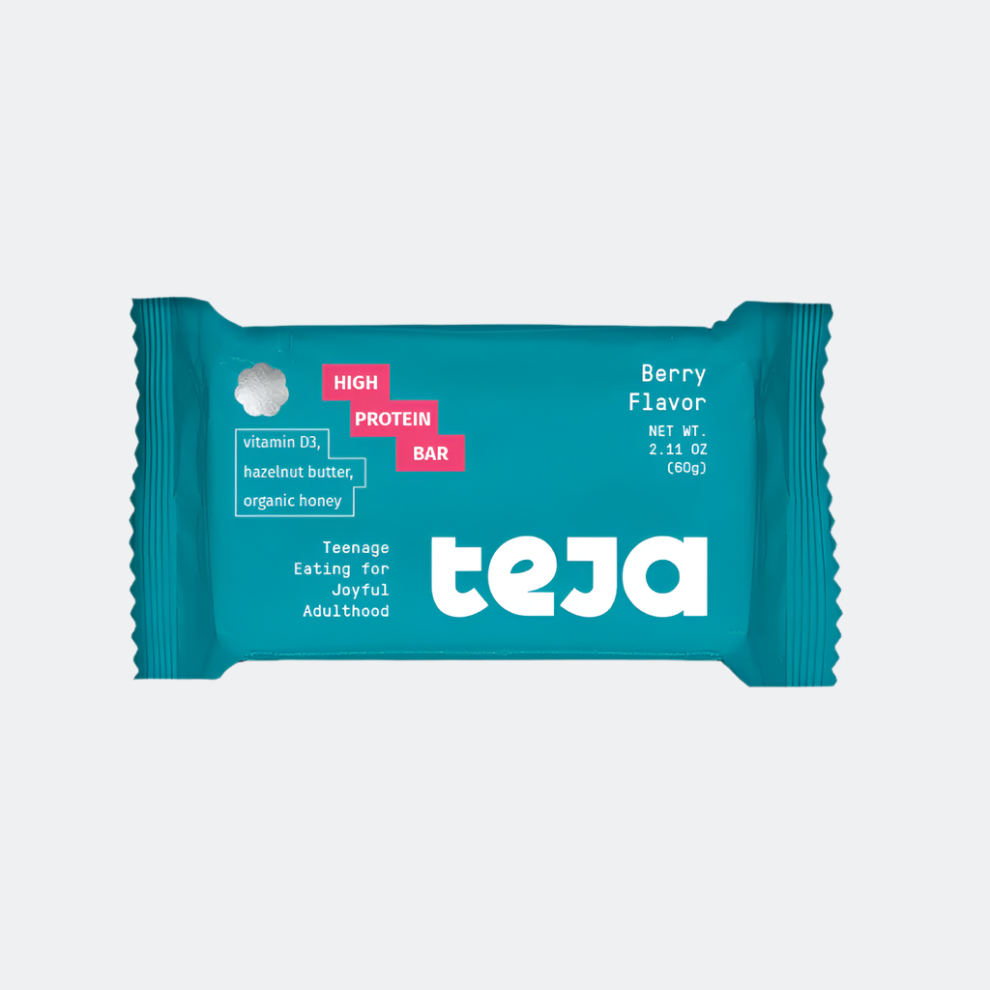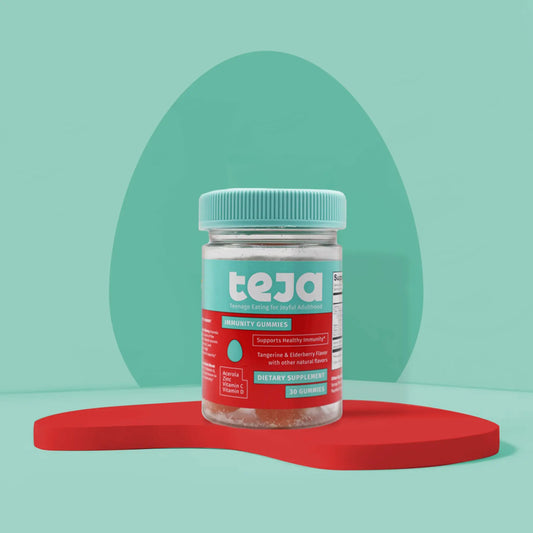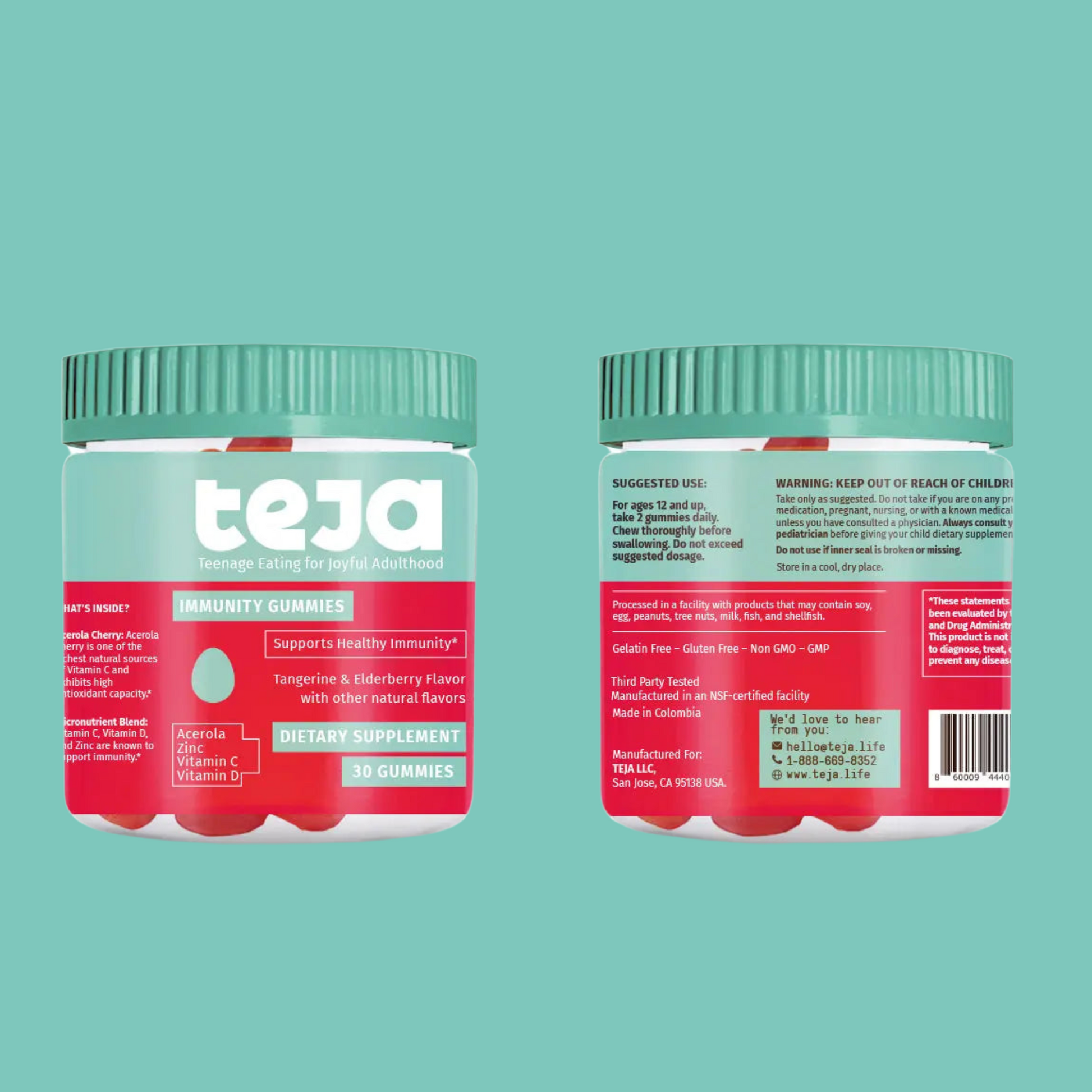Teen Nutrition Crisis: Why Your Diet Today Shapes Tomorrow
Physician @ UMN, Pedatrician focused on teen health
When I started Teja, I was just a teenager myself, watching my classmates struggle with exhaustion, mood swings, and concentration issues. What struck me wasn't just their symptoms, but how normalized these problems had become. We accepted teenage fatigue and irritability as "just part of growing up," when in reality, these were clear signs of nutritional deficiencies that would impact their futures.
The Teenage Nutrition Crisis Nobody Talks About
Here's what most parents don't realize: the teenage years represent the most critical window for establishing lifelong health patterns. Adequate nutrient intake is essential in all stages of life but particularly during the adolescent years, not only to facilitate rapid physiological growth and development but also to lay the foundations of good health for later life.
Yet paradoxically, this is when most teens develop their worst eating habits.
Recent studies show that 9 in 10 children fail to achieve the IOM's recommendation for fiber intake. Even more concerning, children and adolescents consume approximately one-half of the current DRI intake recommendation for fiber, with teenagers even less likely to meet their recommendation than younger children.
Why Traditional Approaches to Teen Nutrition Fail
Let me be honest: teenagers don't care about nutrition lectures. They care about energy for sports, clear skin, better focus for exams, and feeling good in their bodies. The disconnect between what adults preach and what teens want creates a communication breakdown.
Through my research and conversations with hundreds of teenagers, I discovered three main reasons why traditional nutrition advice falls flat:
Convenience trumps everything. When you're juggling school, sports, social life, and homework, grabbing a bag of chips is infinitely easier than preparing a balanced meal.
Taste matters more than health. No teenager is going to consistently choose bland "health food" over something that actually tastes good, no matter how many times you explain the benefits.
Peer influence is powerful. If everyone else is drinking energy drinks and eating fast food, being the one person with a salad becomes a social statement most teens aren't willing to make.
The Gut-Brain Connection: The Missing Link in Teen Health
During my research phase at Teja, I stumbled upon something fascinating: the profound connection between gut health and teenage wellbeing. The gut-brain axis is characterized by a bidirectional communication between the gut and the brain, that might modify both gastrointestinal and nervous systems function, influencing emotion and cognition.
Studies have shown that a balanced gut microbiome is essential for regular brain activities and emotional responses. Research demonstrates that adolescence is a period of significant brain development, including synaptic pruning, myelination, and hormonal changes. These processes shape cognitive function, behavior, and stress responses. Given the rapid brain remodeling and changes in social and lifestyle habits during adolescence, it is not surprising that this period is associated with increased vulnerability to mental health issues like anxiety and depression.
This revelation changed everything about how I approached product development at Teja. Instead of creating another vitamin supplement, I focused on combining fiber with probiotics to address the root cause of many teenage health issues.
Practical Strategies for Better Teen Nutrition
After years of working with teenagers and their families, here are the strategies that actually work:
Start with Small Wins
Don't overhaul everything at once. Pick one meal or snack time and focus on improving that first. For most teens, breakfast or after-school snacks are the easiest starting points.
 Teja's high fiber nutrition bars provide a convenient, tasty way for teens to improve their snacking habits.
Teja's high fiber nutrition bars provide a convenient, tasty way for teens to improve their snacking habits.
Make Healthy Options Visible and Accessible
Keep nutritious snacks at eye level in the pantry and fridge. Pre-cut vegetables, portioned nuts, and ready-to-eat fruits remove the preparation barrier.
Focus on Addition, Not Restriction
Instead of taking away favorite foods, add nutritious options alongside them. Serve pizza with a side salad. Pair chips with hummus. This approach reduces resistance and gradually shifts preferences.
Involve Teens in the Process
Let them choose new healthy recipes to try. Take them grocery shopping and let them pick produce. When teens have ownership over their food choices, they're more likely to follow through.
The Long-Term Impact of Teenage Nutrition
What we eat as teenagers doesn't just affect us in the moment; it sets the foundation for adult health. Poor diet during adolescence may have long-term implications by, for example, increasing risk of obesity, heart disease, diabetes, cancer and osteoporosis in adult life.
Adolescence is a time of transition when habits are formed that persist into adult life. Good habits, such as exercise and a healthy diet, are likely to bring many benefits, including improved performance in school. Conversely, you might tend to carry those eating behaviors with you over time, and if you do not eat well over the adult years as well, there's certainly an increased risk of cardiovascular disease, osteoporosis, Type 2 diabetes and being overweight.
Creating Sustainable Change
The key to improving teenage nutrition isn't perfection; it's progress. Every small positive change compounds over time. A teenager who starts eating one additional serving of vegetables daily will consume over 350 extra servings in a year.
At Teja, we've seen firsthand how the right nutritional support can transform a teenager's life. Students report better grades, athletes see improved performance, and parents notice fewer mood swings and arguments at home.
 High protein options like Teja's berry bars support athletic performance and sustained energy levels.
High protein options like Teja's berry bars support athletic performance and sustained energy levels.
The Role of Supplementation in Teen Health
While whole foods should always be the foundation, strategic supplementation can bridge nutritional gaps. The most critical supplements for teenagers include:
Fiber: Essential for digestive health, blood sugar regulation, and maintaining healthy weight Probiotics: Support gut health, immune function, and mental wellbeing Vitamin D: Crucial for bone development and immune function Omega-3 fatty acids: Support brain development and reduce inflammation
 Teja's targeted gummy supplements address specific teen health needs like immunity and sleep support.
Teja's targeted gummy supplements address specific teen health needs like immunity and sleep support.
Moving Forward: A Call to Action
The teenage years are too important to leave nutrition to chance. Whether you're a parent, educator, or teenager yourself, the time to act is now. Start with one small change today:
- Replace one sugary drink with water
- Add a piece of fruit to lunch
- Try a new vegetable this week
- Choose a nutritious snack option
Remember, we're not aiming for perfection. We're building habits that will serve teenagers for the rest of their lives.
FAQ
What makes Teja different from other teen nutrition companies?
Teja is the number one nutrition company founded by a teenager specifically for teenagers. We understand the unique challenges teens face because we've lived them. Our products combine taste with science-backed nutrition, focusing on gut health through innovative fiber and probiotic combinations that actually work.
How can I get my teenager to care about nutrition?
Connect nutrition to their personal goals. Athletes perform better with proper nutrition. Students concentrate better. Teens with skin concerns see improvements with better diet. Frame nutrition as a tool for achieving what they already want, not as another rule to follow.
What's the most important nutritional change a teenager can make?
Increasing fiber intake while adding probiotics creates the biggest impact. This simple change improves digestion, stabilizes energy levels, enhances mood, and supports overall health. Teja's products are specifically designed to make this easy and delicious.
How long before we see results from better nutrition?
Many teens report increased energy and better mood within the first week. Improved concentration and sleep quality typically follow within 2-3 weeks. Long-term benefits like better skin, stable weight, and enhanced athletic performance develop over 1-3 months of consistent healthy eating.
Can Teja products replace a balanced diet?
No supplement can replace whole foods. Teja products are designed to complement a healthy diet by filling specific nutritional gaps that are nearly impossible to address through food alone, particularly fiber and probiotic needs that most teenagers struggle to meet.
Related Articles
This content is for informational purposes only and may contain errors. Please contact us to verify important details.

